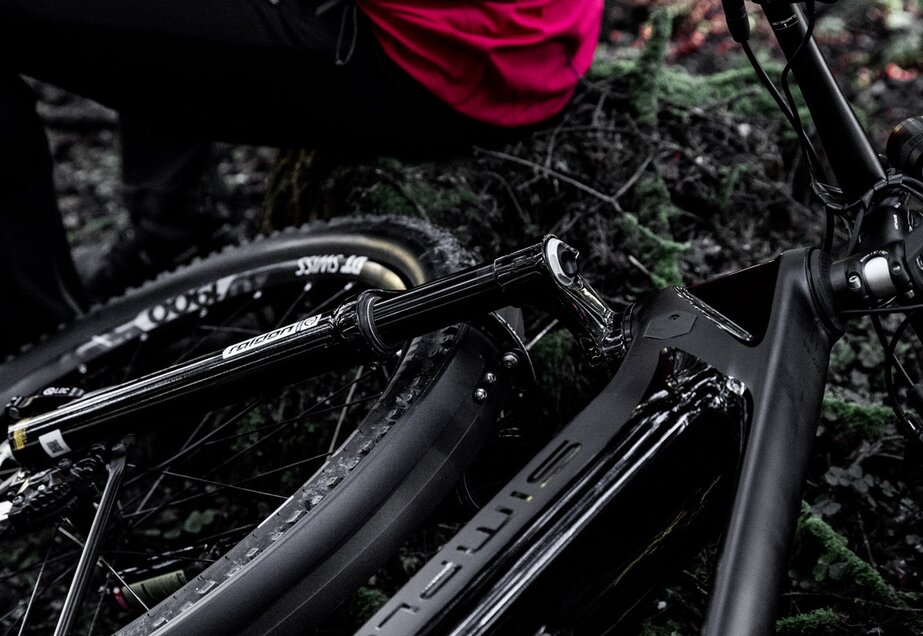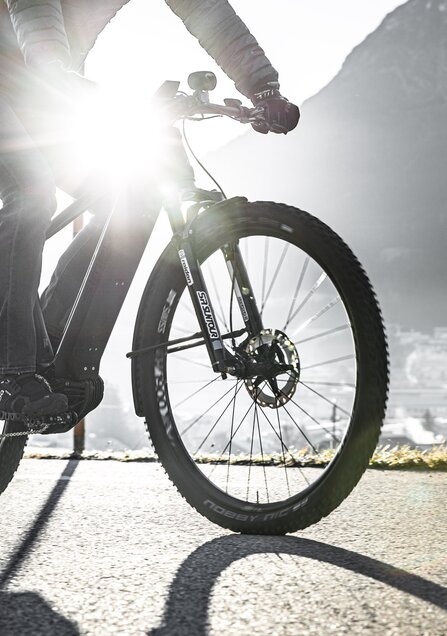

Tips & tricks for your bike battery
How do you properly care for and transport your bike battery? Get helpful information and tips on the battery of your SIMPLON bike. Read more now!
Tips & tricks for your bike battery
The heart of every e-bike or e-mountain bike are the motor and the battery. To get the most out of your bike's power source for as long as possible, it's important to take care of it.
But how do you properly care for your bike battery? What do you have to bear in mind when storing it? And what temperatures does a bike battery not like? We have compiled the most important questions and answers about bike batteries.
Questions and answers about e-bike batteries
Which bike battery is the right one for me?
A question to which we immediately have to answer with a counter question: What type of rider are you? Do you ride your bike to work, to the shops or into town to meet friends? Do you plan to go on multi-day bike tours in the mountains? Or do you want to be able to keep up with your teammates during challenging climbs on steep mountain sections? Think about what you will use your e-bike for in advance! This will also influence the choice of bike and the requirements for your bike's battery.
Here are a few examples: On models like the Chenoa Max e-bike or the Stomp Pmax trail e-bike, we use powerful Bosch motors and batteries with up to 625 Wh – for full power and a long range.
Speaking of range: The dual battery option on the Rapcon Pmax, Sengo Pmax or Chenoa Bosch CX with an integrated 625-Wh battery and an additional external 500-Wh battery is a special highlight in this regard. The two batteries combined provide up to 1,125 Wh – the perfect solution for touring bikers, long-distance commuters or e-mountain bikers.
The Inissio Pmax e-gravel bike or the Kiaro Pmax come with an Ebikemotion hub motor installed, with a barely visible 250-Wh battery. It has less power and is only intended to provide support during headwinds and/or arduous mountain stages.
How do I properly care for my bike's battery?
When you’re not using it or during the winter, don't just leave your battery lying unattended in a corner of your basement! Proper care ensures that your battery will last you for a long time to come. We recommend that you remove it, clean it and wipe it down with a slightly damp cloth. Do not use any harsh or corrosive cleaners! They can damage the battery’s surface. Also avoid cleaning it with a solid water jet or a steam jet!
Important: The plug poles of the e-bike should be checked occasionally and cleaned with a dry cloth and then greased.
What should I pay special attention to in winter?
You are not the only one who feels most comfortable in warm clothing during the cold and wet season. An e-bike, and especially its battery, likes it warm too. Low temperatures reduce the performance and thus the range of your battery.
Tip for winter cyclists: Take the battery with you into your home or office at the end of your ride so it doesn't cool down! Charge it at room temperature and only reinsert it shortly before your next ride!
What should I pay special attention to in spring?
Before your first ride in spring, the battery should be placed in the charging station. During charging, you can either clean the plug poles on the battery holder with dielectric grease or lightly grease them with special (technical) petroleum jelly. After cleaning, dry the contact points thoroughly. Then you can use the battery.
How long does a bicycle battery last?
As with other batteries, chemical ageing also occurs with e-bike batteries. However, it is not possible to make a precise statement about the respective service life. Numerous external factors play a role in that. These include, for instance, the type and duration of use, but also the correct care and storage.
Latest-generation lithium-ion batteries, which SIMPLON uses on all its e-bikes, are true powerhouses. With an integrated battery management system (BMS), they boast a very long service life. Some manufacturers state up to 1,000 full charge cycles. Under ideal conditions, you can expect your battery to last about three to six years.
How far does one battery charge get me?
A question that every cyclist has probably asked before buying an e-bike: How far can I go on one battery charge? However, there is no real way to answer this question. A battery can last from 20 kilometres to over 100 kilometres. Why? Different factors influence the range, including the assistance level, air resistance, the weight of the cyclist, tyre pressure and the surface you are riding on.
Are you tackling a summit climb, or are you casually pedalling along on a flat road? Are you riding on the trail, on asphalt roads, or on a dirt road? Depending on the tour, the battery gets used up differently. What’s more, it also depends on how many watt hours you have under the saddle. 200 to 750 watt-hour batteries are among the most common.
How long does it take to charge a bike battery?
The charging time depends on the capacity of the battery. Depending on the charger and battery, half a charge takes approximately one to two hours. A complete charge can take up to four and a half hours.
The rechargeable lithium-ion batteries installed on SIMPLON bikes can also be charged only briefly, regardless of their battery level. The integrated battery management system protects the battery from overcharging. Even interruptions throughout the charging process do not harm the battery.
SIMPLON expert tip: Only use the charger that comes with the battery! This will prevent damage to the battery, and you will not run the risk of invalidating the warranty.
How do I transport the battery correctly?
When it comes to transporting your e-bike, always be sure to remove the battery beforehand. If you want to be super diligent, you can pack it in a water-repellent protective case.
Good to know: For safety reasons, batteries are not allowed on passenger planes. If you don't want to make do without your e-bike on holiday, it's best to find out in advance if there are any rental shops or specialised bike hotels at your holiday destination.
What’s the best way to store a bike battery?
If you take care of your e-bike battery, you can significantly prolong its lifespan. This includes correct storage. Rule of thumb: Always store your battery in a dry location at a room temperature of about 15 to 20 degrees Celsius, without direct sunlight! During storage, the battery level should ideally be at around 30 to 60 per cent.
Good to know: If you give your bike a break during the winter months, you should check on it from time to time. If necessary, charge the battery to the recommended level!
What happens to old bicycle batteries?
All good things come to an end, including the service life of your battery. When you eventually run out of “juice”, don’t just toss the battery in the bin. Specialist retailers will take care of environmentally friendly disposal – free of charge and in accordance with safety regulations. Precious materials are returned to the raw materials cycle, and the environment stays happy.
If you have any questions about disposing of your bike battery, simply contact a SIMPLON dealer near you!
What should I do if the battery is defective?
If the battery is defective or has reached the end of its service life, the first thing to do is to check what’s wrong with it. To do this, specialist dealers check the battery management system (BMS) and use a special diagnostic tool. In most cases, defective batteries have to be replaced; repairs are rare. If the defect occurs within the warranty period, you will receive a new battery free of charge.
Now that you know how to handle a bike battery correctly, all you need is the right bike? Then take a look at the SIMPLON e-bikes, e-mountain bikes or e-road bikes!











